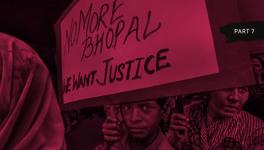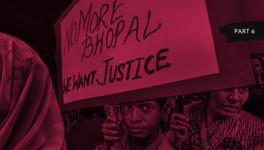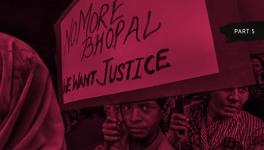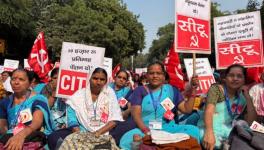Nationwide Protests Ahead of Supreme Court Hearing on FRA
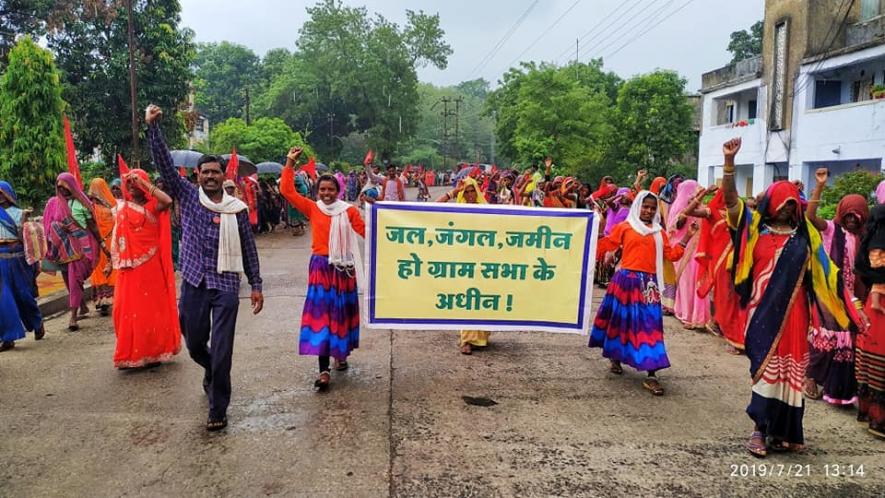
On July 24, the Supreme Court will decide on the ownership claims of nearly 11,27,446 tribal and other forest-dwelling households which have been rejected on various grounds, including absence of proof that the land was in their possession for at least three generations. These numbers are only the tip of the iceberg, as real numbers could surge even further.
As of now, over one million tribals and forest dwellers are living in the fear of eviction, as their claims to the lands that they have been living on for generations, were rejected under the Forest Rights Act (FRA).
Ahead of the hearing, nationwide protests and solidarity marches were held, as eviction notices were being finalised without the consideration of Gram Sabhas. In many cases, arbitrary processes are being followed where the claimants are not being allowed to show proof or file appeals or even ask questions, say tribal groups. Reports of gruesome forms of intimidation tactics are also coming to the fore.
Also Watch: AFSPA-like Changes to Indian Forests Act?
On July 22, a nationwide call by the AIKS (All India Kisan Sabha) AIAWU (All India Agriculture Worker’s Union) and other adivasi organisations was given and protest demonstrations were held in different parts of the country. The demonstrators denounced the move of the Bharatiya Janata Party-led central government to bring in draconian, anti-adivasi and pro-corporate changes in the Indian Forests Act, 1927 and also vowed to oppose those who had challenged the Forest Rights Act, 2006, in the Supreme Court. Today, Forty thousand Adivasis and Farmers staged a dharna in front of Zonal Office in Kalwan in Nashik District against the FRA Amendment Bill.
At Alibag in Raigad district of Maharashtra, about 1,000 tribals and others met taluka-level officials and handed over a letter listing their demands. In Karjat, also in Raigad district, a protest was conducted. In the heart of New Delhi, Jantar Mantar, a solidarity meet was organised. Addressing the gathering, activist Soma KP said, “This is not about eviction, this is about recognition of the rights of the tribals, which are being trampled upon from all sides. The violence is intrinsically linked to the lives of tribals and now it is the question of whether millions of them will get evicted from their lands.”
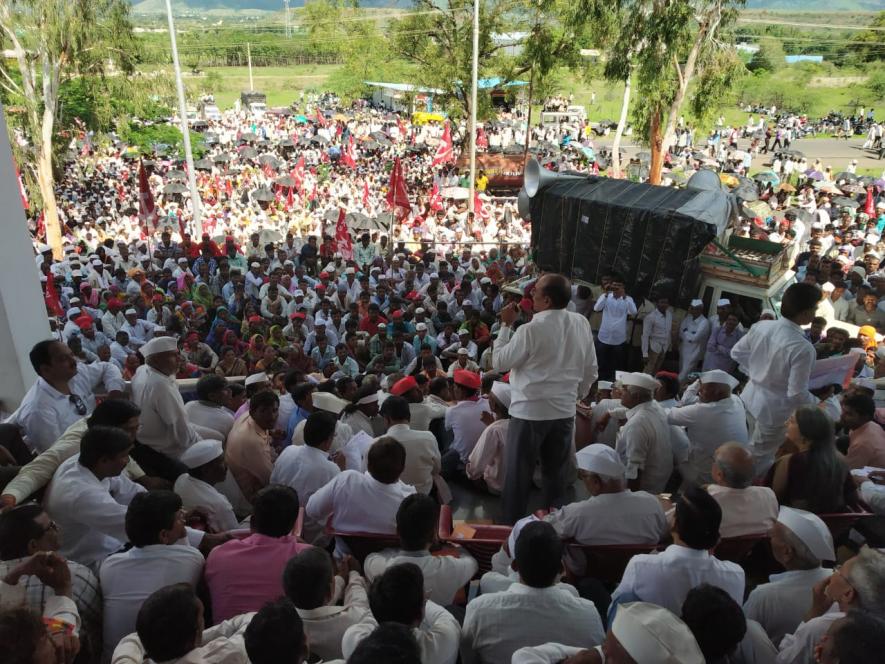
In Madhya Pradesh’s Nepanagar, there were reports of over 3,000 tribals singing songs of resistance and continuing their agitation against the state administration's blatant use of force and violence against the community and its subversion of the FRA. On July 9, 2019, adivasis of Gram Panchayat Siwal in Burhanpur were fired with pellets by the Forest Department as they attempted to protect their sown crops from being destroyed by forest officials, revenue officials and the police, as per reports. Allegedly at the Forest Department's behest, cases of rioting and assault to deter a public servant from discharge of his duty were also registered against some of the adivasis. It was later found out that the FIR even had names of adivasis who had died over 20 years ago!
The FRA establishes the Gram Sabha as the main authority to process and verify individual and community forest rights claims. However, even after 13 years of the passage of the Act, tribals have not been allowed to constitute their separate gram sabhas, undermining the spirit of the Act. The protesting adivasis pointed out that the rights of the Gram Sabha have been constantly impeded, alleging that forest officials were deliberately rejecting or invalidating their claims, in violation of the provisions laid down in the Act and its Rules. The administration and officials of different departments have failed to grasp the fundamental principles of the law and continue to let the forest department have a free hand over the fate of the claims made by adivasis, say activists.
Not just the state and the forest department,violence over control of land is being unleashed across quarters. On July 17, a group of over 300 armed men from the dominant Gujjar community attacked and shot dead 10 people (three of whom were women), while injuring 25 others—all from the Gond tribal community—in Umbha, Murtiya village of Sonbhadra district in Uttar Pradesh. The tribals were massacred for their land by the dominant castes.
Also Read: Ahead of SC Hearing on FRA, State Govts Reject Tribal Claims Without Examination
In another instance, in Madhya Pradesh’s Singhrauli, a 30-year-old tribal woman was killed after three men, including a father-son duo, allegedly ran a tractor over her for her claiming ownership of land. Many were injured in the clashes that followed between the communities.
The violence and rejection of land claims by tribals and forest dwellers have triggered fear among the communities, which are at the lowest rung of the power hierarchy. In Odisha, 10,000 claims have been rejected, while in Rajasthan several claim files have gone missing. Such as a trend is being witnessed across the country.
In its order issued in February earlier this year, the apex court had issued directions to the chief secretaries of each of the 17 states to ensure that in all cases where land ownership claims had been rejected, eviction was to be carried out on or before the next date of hearing, which is tomorrow (July 24). As the apex court picked up this issue following a petition, the Narendra Modi government’s lawyers failed to even turn up for the hearings. The Centre, the Union Ministry of Tribal Affairs and the Union Ministry of Environment, Forest and Climate Change – the respondents in the case – have kept silent in the hearings of the case.
Get the latest reports & analysis with people's perspective on Protests, movements & deep analytical videos, discussions of the current affairs in your Telegram app. Subscribe to NewsClick's Telegram channel & get Real-Time updates on stories, as they get published on our website.















